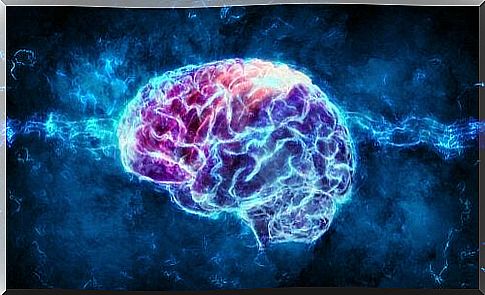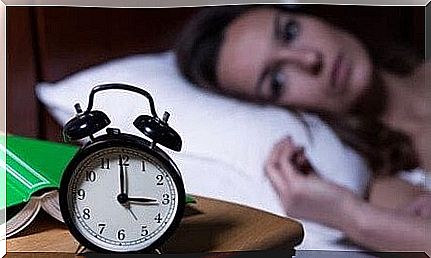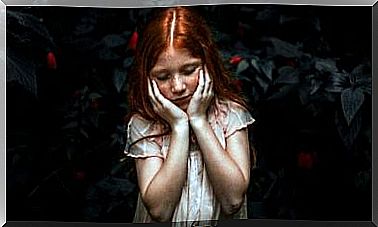Lack Of Sleep And Anxiety Are Harmful To Health

According to recent studies, lack of sleep and anxiety have a significant link. We are not just talking about insomnia itself, but also about sleeping less every day, about constant awakening, about waking up with the feeling of not having rested. If this state manifests itself in a perennial way, it means that our health will be affected.
Neuroscience makes great progress by providing us with interesting and valuable information. For example, it has recently been shown that resting for less than half an hour helps the brain improve short- and long-term memory. Furthermore, we know that sleep is essential for eliminating toxins and other wastes from neural tissue.
Human beings, like most animals, need to sleep. Not doing it properly puts your health and well-being at risk. Therefore, several experiments on sleep deprivation have shown what the risks are. It has also been shown that sleeping less than six hours increases the risk of developing neurodegenerative diseases.
According to Sophocles, sleep is the only emotional medicine for everything and he was certainly not wrong with this thought. Sometimes we neglect its importance and significance altogether. Sleeping every day for at least 7 or 8 hours makes us gain physical and above all psychological health. In fact, lack of sleep and anxiety are closely related.

Lack of sleep and anxiety: an important relationship
The relationship between lack of sleep and anxiety has been the source of numerous studies in recent years. At the Society for Neuroscience annual conference in San Diego, California, this topic was discussed in front of the community of experts. One of the leading specialists in the field, Dr. Clifford Saper, a member of the Sleep Research Society, explained the following.
When we talk about sleep deprivation, we often have misconceptions about it. Lack of sleep is not insomnia. It is not a month without sleep. In reality, it is something so delicate and at the same time common that we often do not give it the right importance.
Lack of sleep means less and less sleep. It means going to bed at midnight and waking up at two in the morning. Fall asleep at three and wake up at five because it is no longer possible to fall asleep. It also means sleeping five or six hours a day and telling ourselves that it is “normal”.
What seriously jeopardizes our health is not entering the REM sleep phase (rapid eye movement), during which the body rests deeply while the brain is more active than ever in performing indispensable activities.

Lack of dream and amygdala
Let’s imagine that we sleep an average of five hours for two or three months. We often wake up tired, however, we are able to carry out our activities and duties normally. We also tell ourselves that when we reach a certain age, the body changes and we need less sleep.
We can convince ourselves of this, but our brains disagree at all; what is certain is that we do not enjoy a restful rest. We don’t always complete all REM sleep cycles and that means we don’t finish processes that are important to our brain health.
Lack of sleep and anxiety are linked because there is a structure that begins to activate in excess: the amygdala. The amygdala is that region of the brain that is activated when it detects a risk. It releases a series of hormones that activate us in order to escape from a hypothetical threat.
For the amygdala, lack of sleep is a threat. It is a danger that counteracts brain homeostasis, the organic balance essential for our well-being. The activation of the amygdala induces us hopelessly into a state of anxiety.
Sleep disturbances affect health
The relationship between lack of sleep and anxiety can sometimes be a real vicious circle. We sleep less and are more anxious. At the same time, the same anxiety intensifies the onset of sleep disorders. And as if that weren’t enough, studies like the one conducted by the University of Adelaide in Australia show more.
Sleep problems not only increase the risk of experiencing anxiety, they are also a risk factor for depression. However, Dr. Eti Ben-Simon, Ph.D. of the University of California, Berkeley Center for the Study of Human Sleep, has some positive thoughts on this.
There are very effective sleep therapies. When the subject is able to improve their night’s rest, psychological well-being improves in a few weeks. Cognitive processes improve and the mood is greatly optimized.
Methods for treating sleep deprivation and anxiety
Sleep hygiene specialists recommend using two strategies. On the one hand, we need to improve our sleep habits. On the other hand, it is essential to learn adequate techniques to better manage stress and anxiety.
We will start with a medical examination in order to rule out other medical problems that affect nighttime sleep disturbances.
A sleep therapy specialist should then be consulted. Nowadays there are very effective programs which do not involve the consumption of drugs and which offer the patient an individual program to improve his rest.
Furthermore, we will keep to our schedules by always going to bed at the same time and following the same rituals. In other words, we will take care of our sleep hygiene (nutrition, physical activity, sleeping environment…).
Other suitable strategies are, for example, paradoxical intention training and biofeedback. These techniques help us understand what to do in case of nocturnal awakenings.
In conclusion, considering that there is a clear link between lack of sleep and anxiety (including depression), it is interesting to take care of your lifestyle. After all, even if no one dies overnight from not sleeping, the lack of sleep takes away a little of our life at a time, reducing our health without us noticing.









